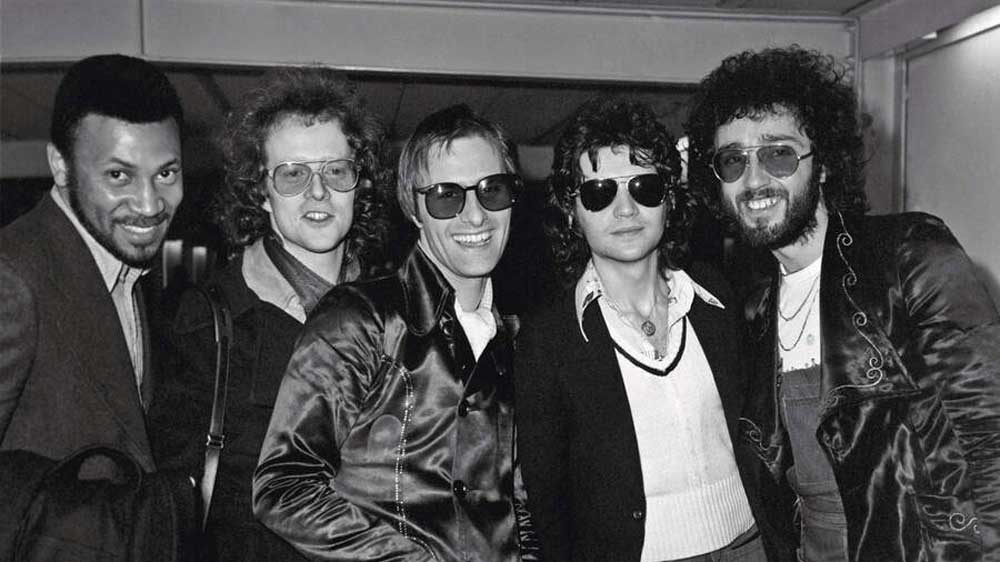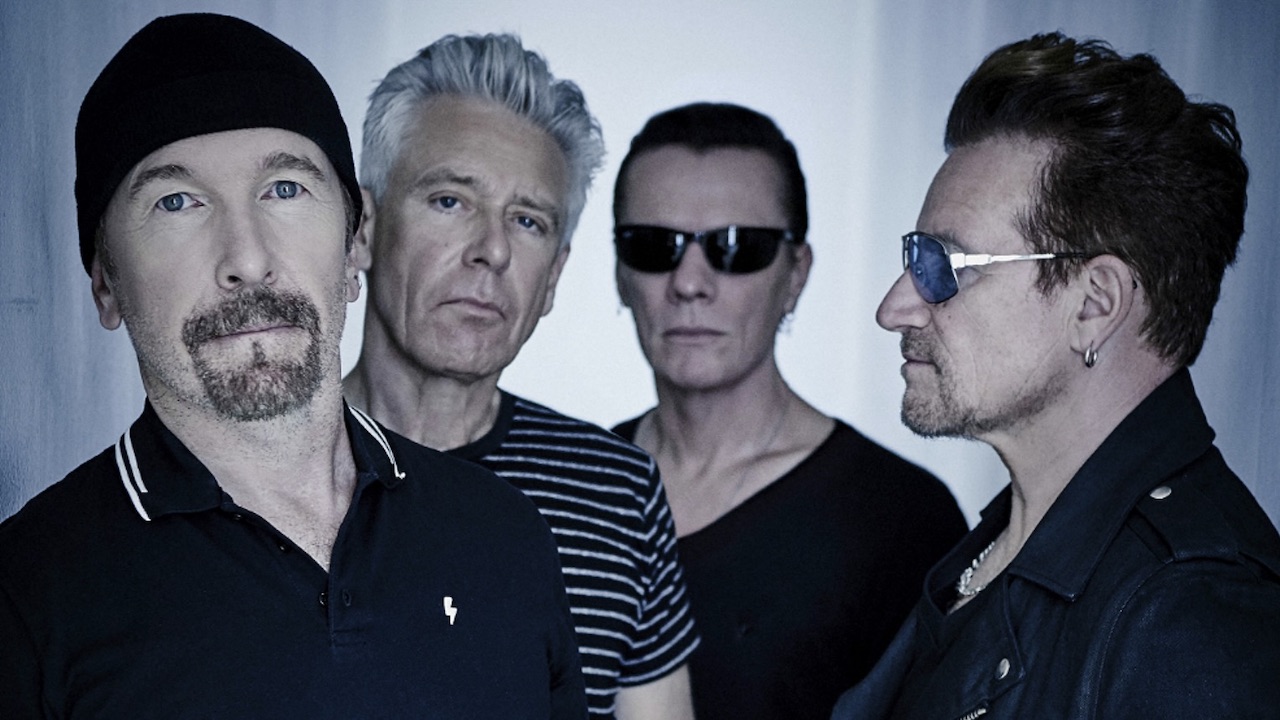"It's huge over most of the world. I hear it everywhere I go": How a Steve Harley song that dissed his bandmates became an all-time classic
Written as a dig at the band members who quit because Steve Harley wanted to do all the writing himself, Make Me Smile (Come Up And See Me) became a timeless hit

Select the newsletters you’d like to receive. Then, add your email to sign up.
You are now subscribed
Your newsletter sign-up was successful
Want to add more newsletters?

Every Friday
Louder
Louder’s weekly newsletter is jam-packed with the team’s personal highlights from the last seven days, including features, breaking news, reviews and tons of juicy exclusives from the world of alternative music.

Every Friday
Classic Rock
The Classic Rock newsletter is an essential read for the discerning rock fan. Every week we bring you the news, reviews and the very best features and interviews from our extensive archive. Written by rock fans for rock fans.

Every Friday
Metal Hammer
For the last four decades Metal Hammer has been the world’s greatest metal magazine. Created by metalheads for metalheads, ‘Hammer takes you behind the scenes, closer to the action, and nearer to the bands that you love the most.

Every Friday
Prog
The Prog newsletter brings you the very best of Prog Magazine and our website, every Friday. We'll deliver you the very latest news from the Prog universe, informative features and archive material from Prog’s impressive vault.
By the summer of 1974, Cockney Rebel were primed to become one of the biggest bands in Britain. Latest album The Psychomodo was tearing up the chart; two singles - Judy Teen and Mr. Soft - had made the Top 10; they’d embarked on a sell-out UK headline tour. Then the wheels came off. Following the final show, at Manchester’s Hardrock in late July, band leader/frontman Steve Harley was confronted by the band’s keyboard player Milton Reame-James.
“He came to me and said that we [the rest of the group] want to write songs for the next album,” Harley told Classic Rock in 2004. “We were doing rather well with me in charge, I thought, so what are they worried about? We’ve all come out of obscurity into this.
"So I said: ‘No, I’m not ready. I’ve already written the new album… I’ve got a million ideas of my own, my head’s full of creative thinking.’ Reame-James told me: ‘We can write songs too’. I said: ‘Well go and do that, then.’ It was a mutiny, and he took with him two lovely young fellas, [violinist] John Crocker and bassist Paul Jeffreys.”
Harley’s argument was that he’d initially formed Cockney Rebel on the understanding that he was the boss and sole songwriter.
Suddenly left without a group, and fortified by a bottle of brandy, he began writing a vengeful riposte to his departed bandmates. He dug out the first song he ever performed, the unused Laid In The Shade, and rewrote the lyrics. Before too long he had the bones of Make Me Smile (Come Up And See Me).
Assembling a fresh iteration of Cockney Rebel, Harley took it into the studio and introduced the song to co-producer Alan Parsons.
“I had no idea what it was all about,” Parsons says today. “I presumed it was about Mae West and her famous ‘Come up and see me’ quote. But it’s apparently about band number one.”
Sign up below to get the latest from Classic Rock, plus exclusive special offers, direct to your inbox!
Harley voiced his sense of betrayal in the opening verse: ‘You’ve broken every code, and pulled the rebel to the floor.’ He went on to make a Biblical reference to Judas and his 30 pieces of silver, accusing his mutineers (Reame-James and Jeffreys joined Be-Bop Deluxe) of leaving Cockney Rebel for the lure of better money: ‘You’ve spoilt the game… For only metal, what a bore.’
The newly assembled line-up began recording Make Me Smile at Abbey Road in November ’74, during sessions for Harley’s third album as captain, The Best Years Of Our Lives.
“That second band was very tight,” recalls Parsons, who reprised his role from The Psychomodo. “I think Duncan Mackay on keyboards, in particular, made a big difference to us.”
Relative newcomer Mackay was still recovering from a brief experience with the Baker Gurvitz Army – “Ginger Baker and Adrian Gurvitz were two of the most unpleasant people I’d ever met” – when he joined Cockney Rebel. The other new members Harley brought in were guitarist Jim Cregan (ex-Blossom Toes/Family) and bassist George Ford. Drummer Stuart Elliott was the only existing member to remain loyal to Harley.
Mackay was aware of Harley’s reputation for being headstrong, but liked his attitude: “Here was a guy who totally believed in himself,” he explains. “He was outrageous in his comments to the press, which meant they had lots to write about. So we got lots of publicity, which obviously helped with the whole shooting match. I quite admired Steve’s arrogance in that he was going: ‘Fuck you lot. This is what I’m doing, and you’d better get on board.’”
Harley’s original vision for Make Me Smile was as a slow blues. Parsons felt it needed a little pep. “We kind of spruced it up a bit in the studio,” he says. “I remember the vocal chorus in particular was very dirgy, so we got these girl backing singers and I said: ‘C’mon, let’s make it more rhythmic’. We had people like Tina Charles, Linda Lewis and Liza Strike, who sang on so many records. It just made everything bouncier.”
Mackay added an inspired intro using ascending notes, and Cregan delivered a remarkable acoustic guitar break. With its dramatic stop-start punctuation and Harley’s arch vocals giving way to an infectious chorus, Make Me Smile felt special to those involved. At the end of the session, EMI exec Bob Mercer popped into the studio, took one listen and declared simply: “Number one!”
“Everyone at the label, and Steve and the band, all thought it would be a hit,” says Parsons. “We all felt pretty good about it.”
And so it proved. Make Me Smile (Come Up And See Me) topped the UK singles chart in February 1975.
“We were in LA – I think it might’ve been a tour with The Kinks – when we found out,” says Mackay. “We all jumped into the hotel swimming pool fully clothed. We didn’t exactly get off the plane home and go straight to do Top Of The Pops, but it was pretty close. It was a fabulous end to what was going on at that moment in time.”
Parsons was on a skiing holiday in Austria when he heard the news. “Make Me Smile actually took over at number one from Pilot’s January, which I’d also produced. I was hugely chuffed by that. I’ve never had two consecutive number ones since then. We unashamedly drank champagne in a club all night.”
Make Me Smile went on to sell more than million copies and appear on many film soundtracks. It effectively served as Harley’s pension right up until his death from cancer in March 2024.
“It’s phenomenal,” he told Classic Rock. “I wish I had ten of them. It’s huge over most of the world. I hear it everywhere I go.”
For Mackay, however, it’s a double-sided memory. Cregan quit Cockney Rebel in 1976. Less than a year later, the band had dissolved altogether, leaving Harley to once again cast around for replacements.
“It makes me feel good that people still love Make Me Smile,” Mackay says. “But we were writing half the stuff. In the end there’s no recognition of your contributions to those songs, which made Jim and I both go elsewhere. He went on to play with Rod Stewart, and I left and worked with 10cc and Kate Bush. So it was a bit shortsighted, because what Steve had then was the perfect Cockney Rebel.”
The Best Years Of Our Lives: 50th Anniversary Edition is out now.
Freelance writer for Classic Rock since 2008, and sister title Prog since its inception in 2009. Regular contributor to Uncut magazine for over 20 years. Other clients include Word magazine, Record Collector, The Guardian, Sunday Times, The Telegraph and When Saturday Comes. Alongside Marc Riley, co-presenter of long-running A-Z Of David Bowie podcast. Also appears twice a week on Riley’s BBC6 radio show, rifling through old copies of the NME and Melody Maker in the Parallel Universe slot. Designed Aston Villa’s kit during a previous life as a sportswear designer. Geezer Butler told him he loved the all-black away strip.
You must confirm your public display name before commenting
Please logout and then login again, you will then be prompted to enter your display name.


